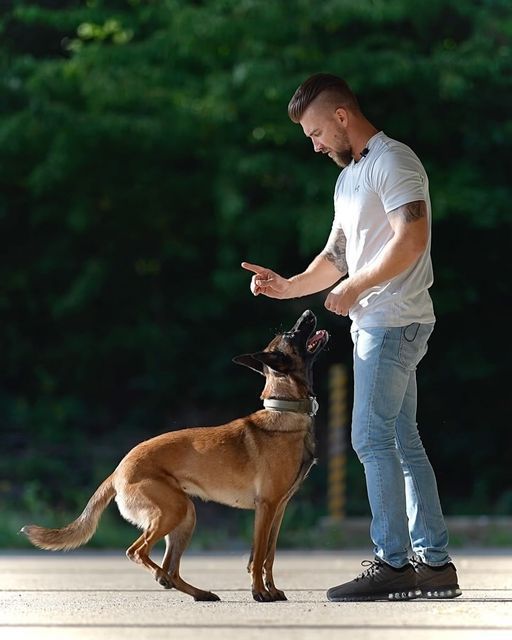In the sprawling and diverse urban landscape of Los Angeles, no two dogs, or their human companions, are exactly alike. Each dog comes with its own unique personality, breed-specific traits, past experiences, and set of behavioral patterns. Similarly, every owner has distinct goals, lifestyles, and challenges. Recognizing this fundamental truth, the most effective dog training programs in Los Angeles have moved beyond one-size-fits-all methodologies, embracing a highly customized approach to meet the unique needs of every canine and their family.
Why Customization is Key to Effective Training
A generic training class, while beneficial for basic obedience and socialization, often falls short when addressing specific behavioral issues or optimizing a dog’s potential. Customization is crucial because:
- Individual Learning Styles: Just like humans, dogs have different learning speeds and preferences. Some respond better to play-based rewards, others to food, and some require more repetition or a quieter environment.
- Breed-Specific Tendencies: A Border Collie’s need for mental stimulation differs vastly from a Bulldog’s. Understanding breed instincts allows trainers to channel natural behaviors productively.
- Past Experiences and Trauma: Rescue dogs, in particular, may carry past traumas or have unknown histories that influence their behavior (e.g., fear, anxiety, resource guarding). A customized plan can gently address these sensitivities.
- Specific Behavioral Challenges: Issues like aggression, severe separation anxiety, or intense reactivity cannot be effectively resolved in a general group setting. They require targeted, controlled, and often one-on-one intervention.
- Owner Goals and Lifestyle: Training should integrate seamlessly into the owner’s daily life. A busy professional needs different program structures than someone with more flexible time.
Elements of Customized Dog Training in Los Angeles
Top dog training facilities and independent Dog training Los Angeles excel at tailoring programs through various key elements:
1. Comprehensive Initial Assessment
The foundation of any customized training plan is a thorough assessment. This typically involves:
- Detailed Interview: The trainer will ask extensive questions about your dog’s history, daily routine, specific behaviors, and your ultimate goals.
- Behavioral Observation: The trainer observes your dog’s interactions, body language, and responses to various stimuli to identify triggers and underlying motivations for behaviors.
- Environment Analysis: For in-home training, the trainer assesses the home environment to understand how it might be contributing to or exacerbating behaviors.
This deep dive allows the trainer to create a precise blueprint of your dog’s needs.
2. Tailored Training Methodologies
Customized training means adapting the “how” of training.
- Positive Reinforcement: While widely used, the type of reinforcement (food, toy, praise, environmental) and its delivery are customized to what motivates your individual dog most effectively.
- Balanced Approaches (where applicable): For certain complex behaviors, a balanced trainer might integrate mild corrections, but always with precision and a focus on humane, clear communication, ensuring the method suits the dog’s temperament and the issue at hand.
- Specific Techniques: Instead of a generic curriculum, trainers employ specific techniques like desensitization, counter-conditioning, shaping, or luring, chosen precisely for the dog’s learning style and the behavior being modified.
3. Flexible Program Structures
Los Angeles trainers offer diverse program formats to fit unique lifestyles:
- Private In-Home Lessons: Ideal for addressing context-specific behaviors (e.g., barking at visitors, house-training) and for dogs uncomfortable in group settings. The trainer works one-on-one with the dog and owner in their natural environment.
- Board & Train Programs: For intensive, immersive training, where the dog lives with a trainer for a period. This is highly customized as the dog receives constant, tailored attention and consistent reinforcement from experts.
- Day Training: A hybrid where the dog attends the facility for professional training during the day, offering consistent progress without an overnight stay.
- Hybrid Programs: Combining elements of private lessons, group classes, or board-and-train to create a multi-faceted approach.
4. Owner Education and Empowerment
A truly customized program empowers the owner. Trainers teach you how to:
- Understand Your Dog: Interpret their body language and motivations.
- Communicate Effectively: Use consistent commands and cues.
- Maintain Training: Implement strategies in daily life, ensuring long-term success.
This personalized coaching ensures that the training is sustainable and that the owner feels confident in managing their dog’s behavior.
Real Results for Unique Dogs
The power of customized dog training in Los Angeles lies in its ability to deliver tangible, lasting results for even the most challenging cases. By recognizing and respecting each dog’s individuality, trainers can unlock their full potential, transforming behavioral issues into harmonious coexistence and strengthening the unique bond between dogs and their devoted Los Angeles parents.
Conclusion
Customized dog training in Los Angeles is the gold standard for addressing the diverse needs of the city’s canine population. By offering personalized assessments, tailored methodologies, flexible program structures, and empowering owner education, these programs ensure that every dog, regardless of their background or behavioral challenges, receives the precise guidance needed to thrive, fostering a lifetime of happiness and understanding.
